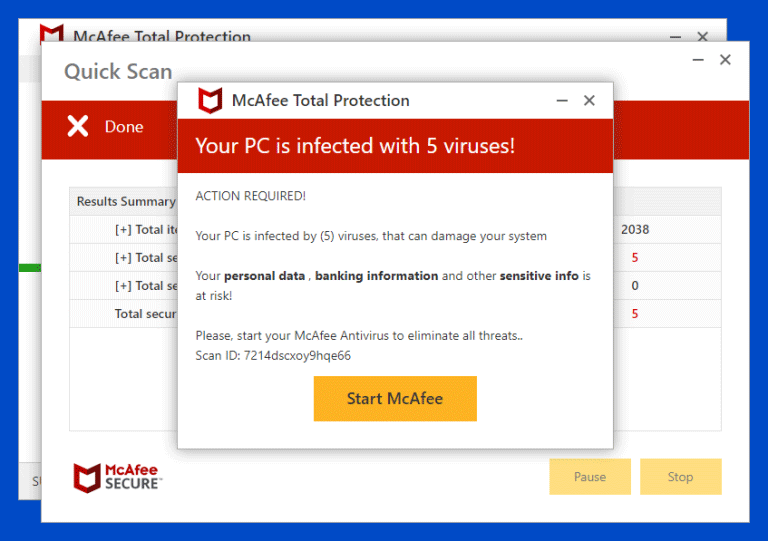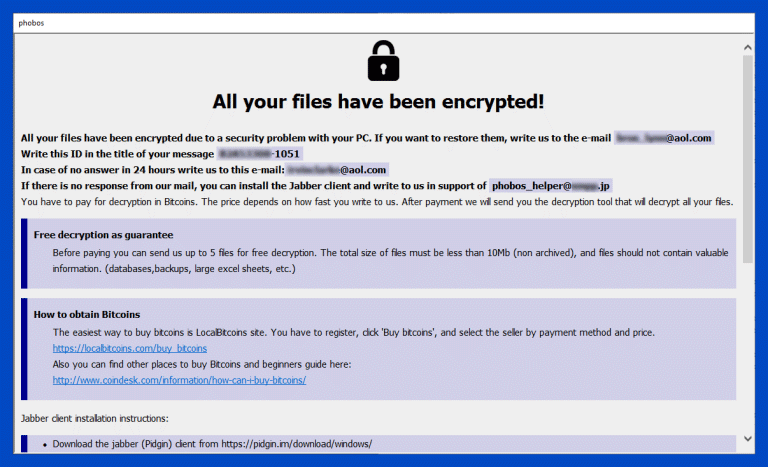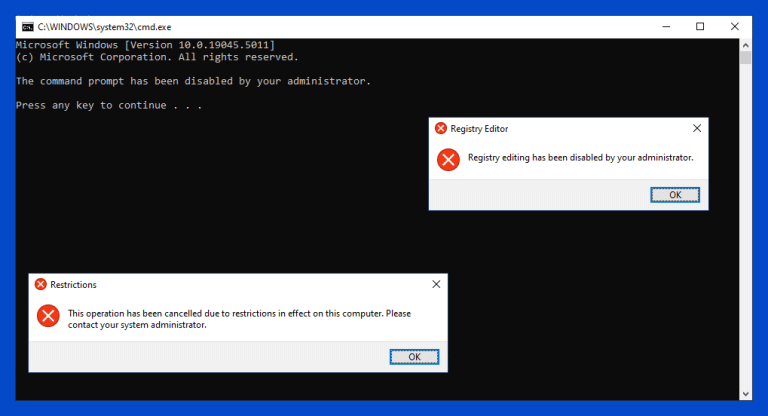7 signs your computer is infected with malware
Sometimes, a slow system or strange behavior can be a telltale sign of a serious malware infection. How do you know if your PC is slow or if malware is affecting it? If you've noticed any of the 7 warning signs below, you may have a malware problem.
1. Pop-up ads are everywhere
Although not as common as they once were, adware programs still bombard their victims with ads. Sometimes they advertise legitimate products, earning affiliate fees for the adware creator whenever someone clicks on the ad. Other times they contain links to malicious websites that will attempt to inject more malware onto your PC.
Of course, legitimate websites also include various types of ads – they make money by selling advertising space so users can enjoy free content. You can still choose to run ad blockers if you really hate those ads. If you start seeing pop-up ads despite running an ad blocker, those ads may be coming from adware rather than a legitimate source.
2. Browser keeps redirecting
Not all website redirects are malicious, but if you try to visit DuckDuckGo or Google and are redirected to an unfamiliar search site, you have a problem. Sometimes the redirects are less noticeable. For example, a banking Trojan might redirect your browser to a phishing site that looks exactly like your bank's real site. In that case, the only clue is the unfamiliar URL in the address bar.
Redirect attacks often rely on browser extensions, so if you suspect a problem, dig into your browser settings and disable or remove any extensions you didn't intentionally install. While you're there, you can also disable any extensions you don't use regularly.
3. Unknown apps send scary alerts
Creating and distributing fake antivirus programs (also known as scareware) is a lucrative business. Perpetrators use automated downloads or other sneaky techniques to get fake antivirus software onto victims' systems, then display alarming warnings about fabricated security threats.

Scanning for malware with a fake security app is free and super fast because it doesn't actually do anything. But if you naively ask the fake antivirus to fix the problems it finds, you'll first see it ask you to pay.
4. Mysterious posts appear on your social media
Malware that targets Facebook and other social media sites spreads by creating fake posts or direct messages. These posts typically include an inflammatory claim. Anyone who believes the fake news and clicks on the link becomes the malware's next victim.
5. You receive a ransom demand
Some malware programs actually hold your PC or data for ransom. Ransomware threats openly encrypt all your important photos and documents and demand that you pay to get them back. Worse still are programs that encrypt your entire computer, rendering it useless unless you pay to unlock it.
Others are just talk and hype. For example, they may display a warning, supposedly from the FBI or another agency, stating that your computer has been used for spam or pornography and demanding that you pay a fine before you can use it again. Of course, even if you pay, you may not get your documents back. Antivirus applications and security suites will protect against most malware, but you can also take your security a step further by adding a dedicated anti-ransomware program to your security arsenal.

6. Your system tools are disabled
Smart users, when suspecting malware, can launch Task Manager to investigate or check settings using Registry Editor. If you suddenly find that when trying to use these or other system tools, a message stating that the administrator has disabled them will appear, then it is most likely an attempt by malware to protect itself on your system.

7. Everything seems completely normal.
Some types of malware go to great lengths to hide their activity, leaving no trace behind. Even if you don't notice anything unusual, there's a chance that a bot on your system is silently waiting for orders from its command and control system, perhaps to participate in a DDoS (Distributed Denial of Service) attack. A remote access Trojan (or some other form of spyware) could be collecting your personal information, hiding behind a mask so you don't notice it. Just because you can't see it doesn't mean it's not lurking.
What to do if your computer is infected with malware?
If you think malware has entered your PC, install a strong antivirus app or security suite immediately. Then, manually run an update to make sure your antivirus software has the latest malware definitions, and run a full scan.
If you still have an unwanted application that your regular security software can't remove (or you just want to make sure your system is clean), you can rescan your PC with a powerful cleanup tool like Malwarebytes Free. Do everything you can to remove that nasty, malicious program from your system as soon as possible, before your security problems get worse.
Once you've addressed the immediate problem, double-check your defenses. Make sure you have a highly rated antivirus or security suite installed and that everything is up to date. This will protect your local data. For an additional layer of protection, consider installing a virtual private network, or VPN. By running your Internet connections through an encrypted channel, a VPN protects your data even as it's in transit. Always be vigilant and keep an eye out for these signs of malware infection!